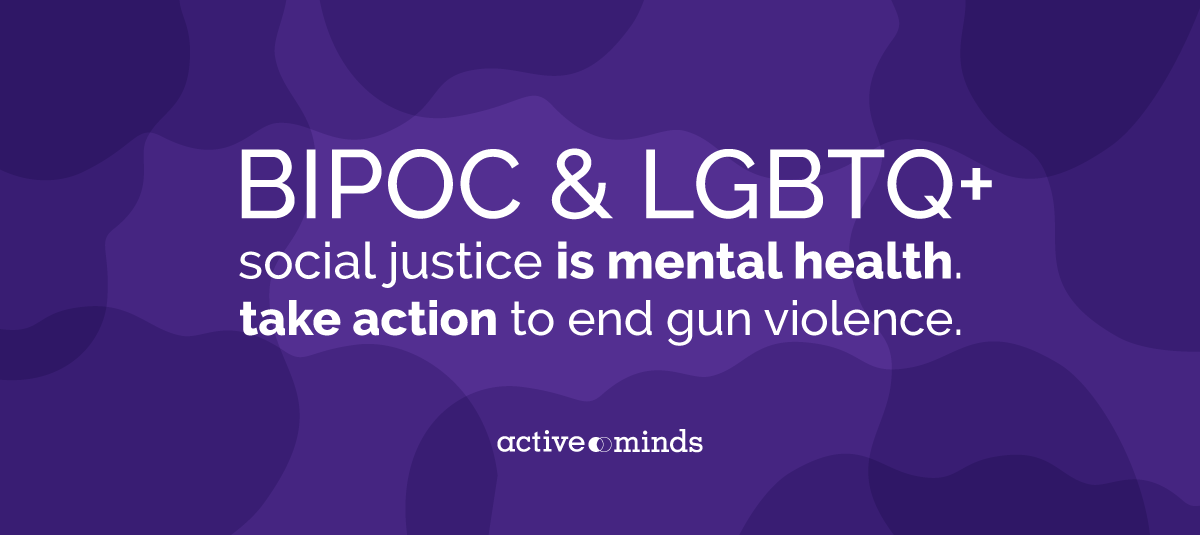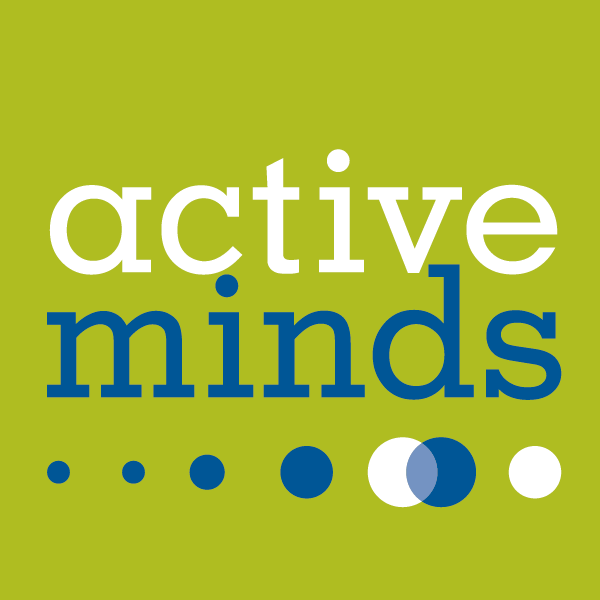Now more than ever, we’re seeing investments in mental health: from colleges and universities prioritizing the expansion of resources, to corporations supporting further research, to President Biden addressing the youth mental health crisis head-on at the State of the Union. As we continue to focus on mental health in the way it deserves, we must also care about the issues intertwined with mental health, including gun violence. After all, trauma prevention is mental health. Safe schools, workplaces, and communities are mental health. Combatting the systems that perpetuate violence, including racism, xenophobia, homophobia, and more is mental health. If we are to take a stand in creating a more positive mental health culture for all, we need to be direct about the barriers that stand in our way.
Black, Indigenous, and People of Color (BIPOC) and lesbian, gay, bisexual, transgender, queer and questioning (LGBTQ+) individuals are undeniably more likely to be victims of gun violence, and thus those communities may see an increased negative impact on their mental health as a result. This is because gun violence doesn’t just affect its victims, or even just its victims’ families. Gun violence shakes communities, both locally, and in communities of oppressed identities. And the repercussions can continue to be felt not only for years but for generations to come.
After all, gun violence doesn’t stop when the shooter is apprehended. Instead, it traumatizes those affected for years to come, as well as shines a light on the shortcomings we have in our country – in schools, public health support, mental health resources, and more. And these shortcomings are exacerbated in the communities formerly mentioned. Black and Latinx young adults are uninsured at higher rates than White young adults. Only 36% of LGBTQ+ youth who have wanted mental health care have received it. So, two things are true: gun violence disproportionately affects oppressed communities, and oppressed communities are those least likely to have sufficient access to quality care and support to address this trauma.
That leaves us with the question: what can we do?
We can speak up. We can explicitly educate ourselves on and highlight these discrepancies, advocate for change, and support those around us who may be suffering. Here are a few resources to get started:
Learn About the Intersectionality of Gun Violence
- Gun Violence Is a Racial Justice Issue: “Gun violence alone reduces the life expectancy of Black Americans by four years. And yet, the U.S. largely ignores the external, systemic factors driving inequality and violence in Black neighborhoods.”
- Community Gun Violence: “The neighborhoods disproportionately affected by community gun violence are the same neighborhoods impacted by social and economic inequities that can be traced to racism, segregation, and current discriminatory policies, like redlining, exclusionary zoning, and mass incarceration.”
- Pulse Six Years Later: “We must continue to fight at the intersection of gun violence prevention and LGBTQ+ rights to make Florida—and the United States—safe for all.”
Advocate for Change
- Connect with an organization focused on gun violence prevention:
- March for Our Lives: Youth-led movement dedicated to promoting civic engagement, education, and direct action by youth to eliminate the epidemic of gun violence.
- Students Demand Action: Youth activist group committed to ending gun violence with more than 400 groups across the country, as well as volunteers in every state as well as Washington D.C.
- Hopeful Future Campaigns: A national report card that scores every state on policies that support school mental health, with recommendations for how to improve through a youth-centered advocacy center.
- Call for increased resources dedicated to mental health to help address community trauma:
- Transform Your Campus: Advocate for increased access to crisis resources for students, appropriate and usable leave of absence periods for those dealing with trauma or other mental health issues, as well as means reduction efforts on campus.
- Evokate: Learn about actions you can take to help advocate for change around intersectional issues related to mental health, including LGBTQ+ rights and racial justice.
- Mental Health Advocacy Academy: Learn more about the connection between mental health and advocacy, including regarding racial justice, equitable access to care, and grassroots organizing; for high school students only.
Supporting You and Your Network
- Offering Help: Learn how to navigate interactions with loved ones who may be struggling with their mental health, including specific tips for friends, family, students, and employees.
- Tips for Self-Care: Find resources for taking care of yourself during difficult times, as well as creating a self-care routine that works for you.
- V-A-R® (Validate-Appreciate-Refer): Active Minds’ everyday tool for everyday conversations, helping to guide dialogue about mental health even when it may be difficult.




